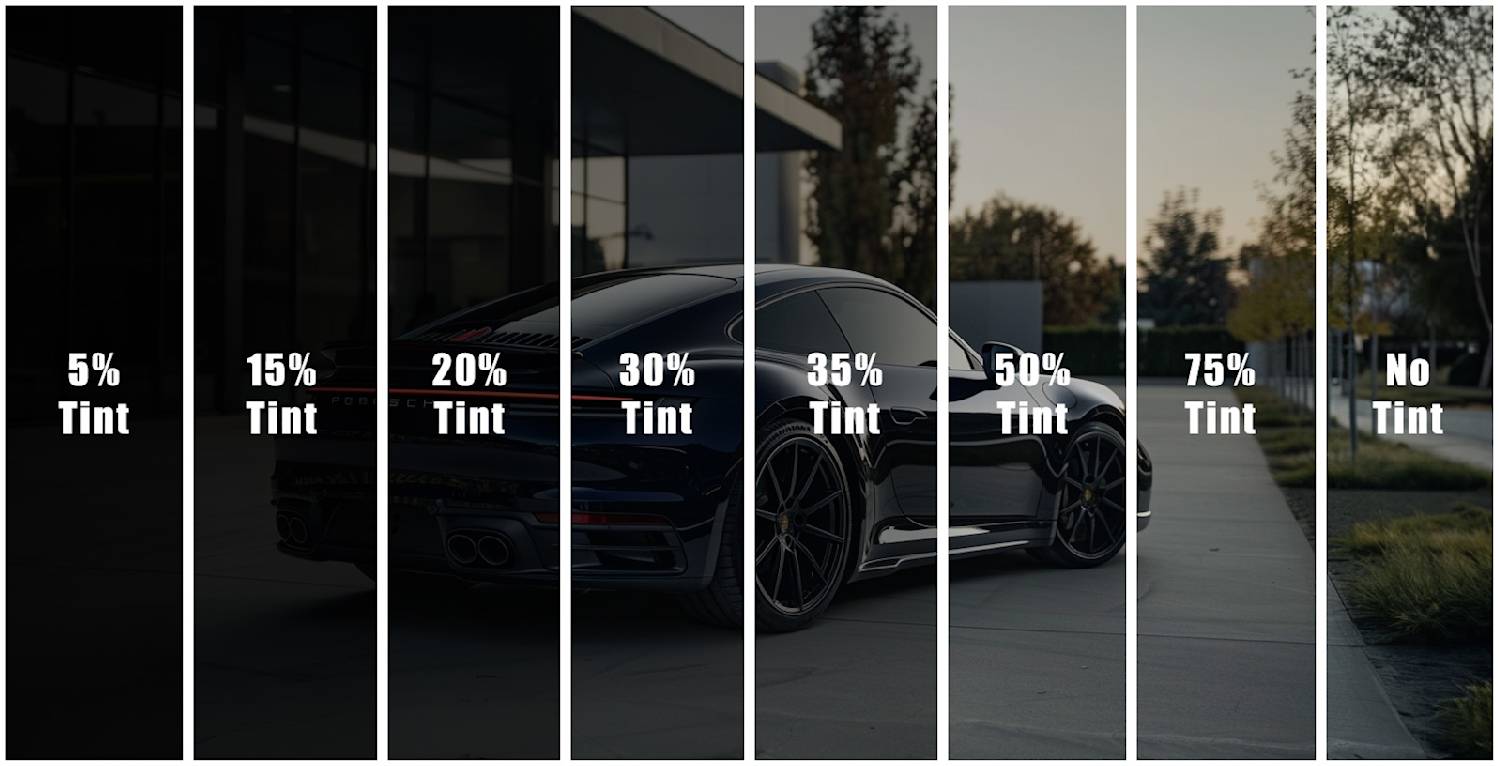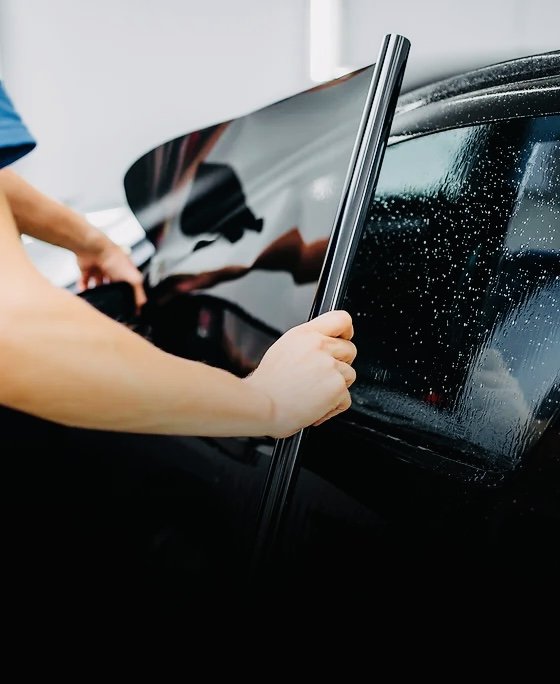The Ultimate Guide to Window Tinting: What You Need to Know Before You Apply
The Ultimate Guide to Window Tinting: What You Need to Know Before You Apply
Blog Article
Home Window Tinting Rules: What You Required to Know Before Tinting Your Car
Recognizing home window tinting legislations is crucial for any type of car proprietor thinking about tinting their vehicle. As you ponder enhancing your vehicle's appearance and performance, it is important to grasp not just the lawful implications however also the useful factors to consider that come with selecting the ideal tint.
Importance of Understanding Color Regulations
Recognizing home window tinting laws is vital for car proprietors to make sure compliance with state guidelines. These legislations determine the permissible degrees of tint darkness and reflectivity, which can dramatically differ from one jurisdiction to an additional. Failing to abide by these guidelines can result in penalties, required removal of the color, and potential problems during automobile inspections.
Furthermore, comprehending these legislations aids lorry proprietors make notified choices regarding their tinting choices. Different kinds of home window films supply various benefits, such as UV protection, warmth being rejected, and glow decrease. However, without understanding of the legal limits, vehicle proprietors run the risk of picking products that might inevitably lead to legal issues.
Furthermore, recognition of tinting regulations cultivates a much safer driving atmosphere. window tinting. Excessively dark colors can harm visibility, boosting the threat of crashes, particularly in the evening or in damaging weather. Regulation enforcement agencies likewise utilize these guidelines to ensure road safety and security, making compliance not just a legal responsibility but an individual responsibility
State-Specific Color Laws
Each state in the united state has actually developed its own specific guidelines concerning window tinting, reflecting a diverse selection of criteria and requirements. These regulations can differ substantially, affecting how car owners come close to installation and compliance. As an example, some states enable darker tints on back windows while imposing rigorous restrictions on front-side home windows.
In addition, policies commonly define allowable color materials and shades. Certain states ban reflective tints completely, while others might permit them to a restricted degree. Moreover, some territories mandate that vehicles with colored home windows present a sticker suggesting conformity with state laws, supplying a clear identification for police.
Enforcement of these legislations likewise differs; some states are much more positive, conducting arbitrary checks, while others count on issues or noticeable offenses to launch enforcement. Automobile proprietors ought to understand that failing to adhere to state-specific color regulations can cause fines, obligatory removal of unlawful colors, or both.

Legal Tint Percentages
Identifying the legal color percents is essential for automobile proprietors seeking to adhere to state laws. Each state has specific laws governing exactly how much light should travel through the windows of a vehicle, which is revealed as a portion referred to as Visible Light Transmission (VLT) This portion varies considerably throughout states and can depend on the type of home window-- front side, rear side, and windscreen.
As an example, some states allow as little as 20% VLT on front side home windows, while others might permit up to 50%. Windscreen tinting is usually more limited, with several jurisdictions enabling just a narrow band of tint on top of the windscreen. In contrast, back windows typically have much more forgiving policies, with some states allowing darker colors.
It is essential for lorry proprietors to acquaint themselves with their neighborhood regulations to stay clear of prospective lawful concerns. This consists of understanding exactly how VLT is measured, as it can vary based on the kind of window movie utilized. Remaining notified concerning these regulations makes certain conformity and promotes secure driving conditions for both the car proprietor and others on the road.
Effects of Non-Compliance
Falling short to adhere to window tinting regulations can lead to considerable repercussions for automobile proprietors. Police officers educated to determine prohibited tint degrees look at this web-site may issue penalties, which can differ by territory yet often vary from modest to substantial quantities.

Insurance provider might likewise penalize for non-compliance, as prohibited modifications can be watched as a breach of policy terms. If an occurrence happens., this could influence insurance coverage rates or lead to difficulties in claims.
Inevitably, the repercussions of non-compliance extend past prompt economic penalties; they can influence a driver's insurance policy rates, legal standing, and general vehicle worth, emphasizing the importance of adhering to regional window tinting laws.
Tips for Deciding On Tinting Options
When picking home window tinting alternatives,Recognizing the ramifications of non-compliance highlights the importance of making educated selections. First of all, acquaint on your own with your state's certain legislations pertaining to tint darkness and reflectivity. Each state has distinct laws that dictate the permitted restrictions, so ensure you remain within these standards to prevent fines.
Secondly, take into consideration the kind of color material. Alternatives consist of dyed, metalized, and ceramic tints, each offering varying degrees of warmth denial, UV defense, and durability. Ceramic tints give premium warm resistance without interfering with electronic tools, making them a prominent selection.
In addition, assess your main objective for tinting. If you look for boosted personal privacy, choose darker colors; nevertheless, bear in mind that this might influence exposure at evening. On the other hand, if glow reduction and UV defense are your major concerns, lighter colors might suffice.
Last but not least, check it out talk to a specialist installer that is experienced regarding local regulations and can recommend premium products matched to your requirements (window tinting). Taking these elements into account will ensure you make a well-informed decision, eventually boosting both your automobile's looks and functionality
Final Thought
To conclude, knowledge with home window tinting regulations is necessary prior to applying tint to a vehicle. Each state applies certain policies pertaining to noticeable light transmission portions, especially for front-side home windows and windscreens. Non-compliance can cause significant charges, including penalties and obligatory elimination of non-conforming tint. By comprehending lawful needs and selecting proper tint materials, vehicle proprietors can achieve aesthetic improvement while staying certified with relevant laws. Adherence to these guidelines makes certain both safety and satisfaction.
Understanding home window tinting laws is necessary for any lorry owner taking into consideration tinting their car.Understanding window tinting legislations is vital for lorry proprietors to ensure compliance with state guidelines. Some states allow darker colors on rear windows while enforcing strict restrictions on front-side windows.
In contrast, back windows typically have a lot more forgiving regulations, with some states allowing my review here darker colors. (window tinting)
In verdict, experience with home window tinting legislations is essential prior to using tint to a vehicle.
Report this page